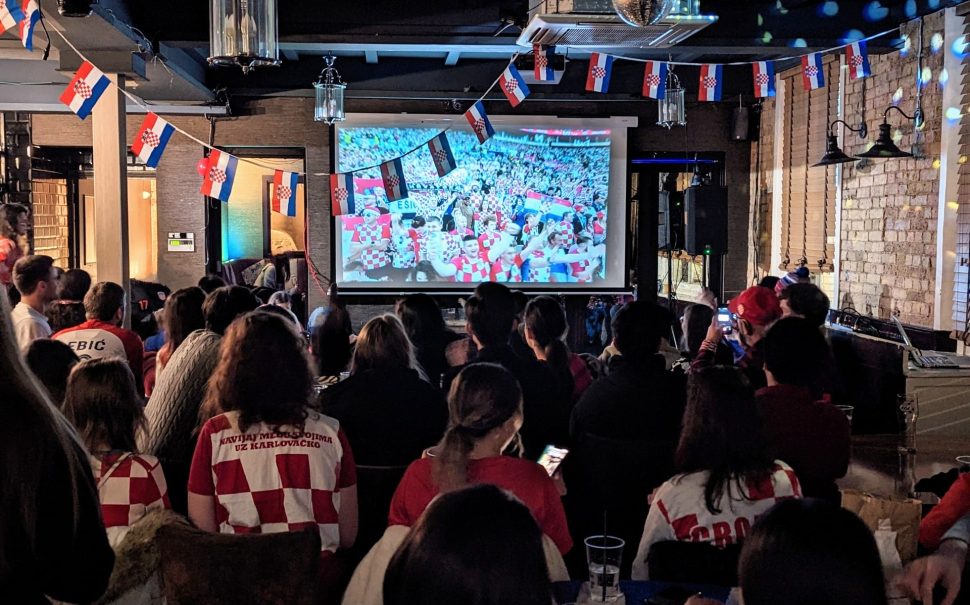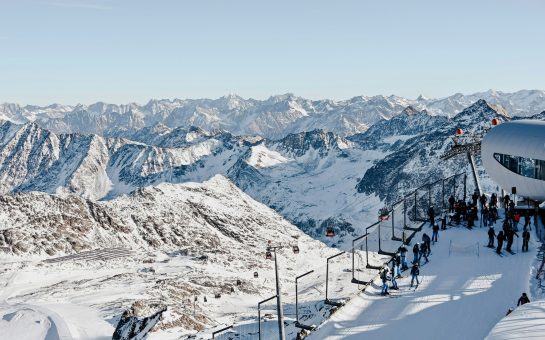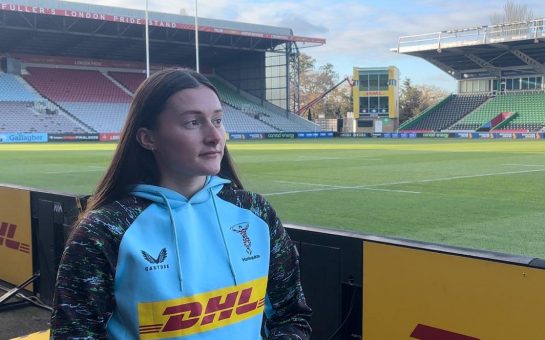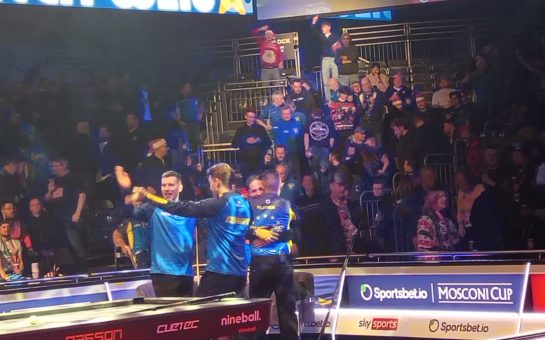“I’m not sure if I’m in London or Croatia right now but this is really special.”
Nena’s side were 2-0 down to Argentina when I spoke to her at half-time but her thoughts and emotions hadn’t changed since before the game.
If anything, they served to reinforce what I had already come to appreciate having spent the first half watching their World Cup semi-final match surrounded by her and her fellow countrymen.
England’s journey at this World Cup may have come to a dramatic and deflating conclusion on Saturday but London’s multiculturalism meant that for many fans in the capital, World Cup dreams were still alive.
On Tuesday night, in a room above a Fulham bar, it was Croatians who assembled hoping they could celebrate a historic victory – their nation reaching their second successive World Cup final with a win against Argentina.
Croatia’s continued presence amongst football’s international elite has become so normalised, perhaps even expected, that the nature of the achievement can often go underappreciated.
Their population of 3.9 million makes them the third smallest nation competing at this tournament and yet this is the third time, since their independence in 1991, that Croatia have reached the final four from the six occasions they have competed in a World Cup (1998, 2018, 2022).
Brazil, the favourites heading into the tournament, have a nation of 215 million steeped in footballing history but were undone by the European underdogs in the quarter-finals.
“The passion – from the players, from the fans, from the entire country. It is something that really matters,” Franko told me when I asked him how his nation continues to upset the odds.
“It’s not something tangible but it’s something that pushes you forward and it’s all about passion. They showed that in 2018, and they are showing it now.”
Hrvoje, another fan, moved to the UK in 2014 and enjoys coming down to events like these to connect with fellow Croats.
He said: “It helps me feel closer to my country. We are very proud people, we never give up and we always fight to the end.”
That pride was self-evident as the national anthems rang out and the game began but it manifested itself in a manner the likes of which I had rarely seen.
Save for the visibly nervous man with a flag draped over his shoulders and a water polo cap on his head, the room felt eerily calm.
Perhaps it was my lack of personal investment in the game’s outcome, perhaps Croatian people are well known for their poker faces, but I couldn’t help but compare it to the tense and vastly different atmosphere I had been a part of whilst watching England on Saturday night.
Shrieks and claps of encouragement, as Croatia controlled much of the early goings, were not laced with expectancy but, rather, fueled by enthusiasm.
It felt like an unspoken yet collective understanding to not take these moments for granted but to savour the historic moment regardless of how it unfolded.
And as I ducked and bobbed my head, trying to catch a glimpse of the action in the packed-out room, it was hard not to appreciate this different atmosphere.
“It’s our mentality,” Nena had explained to me before the match.
“We are so passionate about our little country and I think that passion and enjoyment are so important when it comes to football.”
Even after Lionel Messi’s penalty and Julian Alvarez’s second put Croatia two goals behind, that passion and enjoyment still shone through.
The hundred or so in attendance, an encouraging mix of ages and genders, continued to chat away – some video-called relatives, others filmed themselves and the crowds in the bar.
Beside me, a man showed countless WhatsApp messages from friends and families all watching the game, all sporting their šahovnica checked shirts.
There is no divine right – as many fans have come to realise – for your nation to reach the latter stages of these tournaments. The Croatians around me understood that without question and seized upon every moment to enjoy that accomplishment.
When Messi’s 69th-minute mesmeric dribble brought him to within metres of the goal, there were gasps. When Alvarez slotted home the cutback, there were sighs.
Franko, who I had spoken to earlier, arose from his seat, applauded what he had just witnessed, and toasted the remains of his drink.
He turned to me and shrugged his shoulders – not out of disappointment or anger but in appreciation – as if to say: ‘what are we supposed to do about that?’
He was correct. What can you do when faced with such footballing brilliance? Many might point and blame their players but there was none of that – not here on this night.
The game and the crowd with it fizzled out towards its conclusion after that. It wasn’t to be for Croatia on Tuesday night and, in truth, they never really threatened.
But as the cameras panned to the defeated Croatian players in Qatar, a round of applause for their players broke out amongst those still in the bar.
There will be no inquest into Zlatko Dalic and his tactics, no abuse on social media towards the players – at least not from those Croatians I was surrounded by.
Instead, there will be continued pride, passion and more memories to cherish from another special tournament by their courageous footballing nation and that feels more important than any result on a grass pitch.
Follow the Sports section of the SW Londoner for more coverage of the World Cup 2022.





